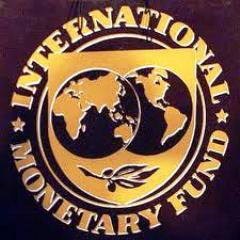Sudan calls on IMF to provide technical assistance
February 15, 2014 (KHARTOUM) – An International Monetary Fund (IMF) mission concluded a visit it made to Sudan this month after being apprised on the government’s economic reform program and holding meetings with officials including the finance minister Badr al-Deen Mahmoud and the Governor of Central Bank Abdel-Rahman Hassan.
 Mahmoud called in press statements on Saturday the IMF mission to provide the requested technical assistance and support to the productive sectors in order to raise their efficiency levels so as to increase exports and fasten the pace of import substitution, attract more investment to productive sectors and boosting revenue in non-oil sectors to compensate for the loss in oil revenues resulting from South Sudan’s secession in July 2011.
Mahmoud called in press statements on Saturday the IMF mission to provide the requested technical assistance and support to the productive sectors in order to raise their efficiency levels so as to increase exports and fasten the pace of import substitution, attract more investment to productive sectors and boosting revenue in non-oil sectors to compensate for the loss in oil revenues resulting from South Sudan’s secession in July 2011.
The finance minister underscored the importance of harmonizing the IMF proposals in the area of economic reform with the country’s budget and adhering to its guidelines and general framework.
He pledged to provide the data required for the reform and disclosed that a technical committee has been formed headed by the Undersecretary of Finance that is comprised of economic sector ministries with the aim of ensuring the provision of data and standardization of their sources.
The IMF’s mission chief for Sudan Edward Gemayel said that their visit was aimed at discussing the joint program between the Sudan and the IMF for 2014 adding that the two sides are in agreement about the program.
Gemayel pointed to the importance of the program’s success in the efforts to tackle Sudan’s external debt issue.
Late last September, the Sudanese government agreed to scale back fuel subsidies which caused prices of gasoline and diesel to increase by almost 100%.
Violent clashes erupted between the demonstrators and security forces in different parts of the country as a result leading to the death of several hundreds.
Senior Sudanese officials including president Omer Hassan al-Bashir have defended the measures saying the only alternative would be an economic collapse as the state budget can no longer continue offering the generous subsidies on petroleum products to its people.
At the time, the IMF approved of Khartoum’s decision saying that fuel subsidies in Sudan “disproportionately” benefit the rich.
“[T] he bottom quintile of the population receives about 3 percent of the subsidy, whereas the top quintile receives more than 50 percent. Against this background, the phasing of fuel subsidies should proceed in a gradual fashion over the next four to five years” the IMF said in its Sudan Article IV Consultation report released last year.
Sudan also asked the IMF to devise a program that would help in its efforts to secure debt relief.
Sudan’s external debt is estimated to have grown by 27% since 2008 from $32.6 billion to $41.4 billion in 2011.
The IMF said that Sudan’s debt will hit $44.7 billion in 2013 which amounts to 85% of its Gross Domestic Product (GDP).
Analysts say that without political backing of western countries, it would be near impossible for Sudan to convince creditors of cancelling its debts even if it fulfils all other technical requirements.
Last month, the British Minister for Africa Mark Simmonds said that resolving Sudan’s debts is contingent upon Khartoum approving poverty reduction strategy which means the ball is in its court.
(ST)
